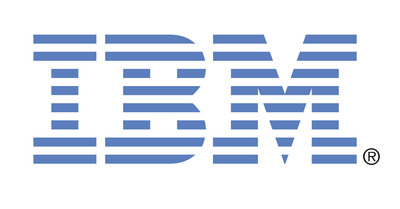IT Professionals Predict Watson Technology to Transform Education Industry
ARMONK, N.Y., Nov. 15, 2011 /PRNewswire/ -- Developers around the world believe IBM (NYSE: IBM) Watson's sophisticated analytics capabilities will transform industries that are managing massive amounts of data, according to the 2011 IBM Tech Trends Report released today. Survey respondents selected education and healthcare as the areas that could benefit the most, with financial services, life sciences and government also ranking near the top.
(Photo: http://photos.prnewswire.com/prnh/20111115/NY07024 )
(Logo: http://photos.prnewswire.com/prnh/20090416/IBMLOGO )
The 2011 Tech Trends Report surveyed more than 4,000 Information Technology (IT) professionals from 93 countries and 25 industries who provided their views on future IT trends. The results also show a growing need for technical skills in the areas of business analytics, social business, mobile computing, open source technologies and cloud computing. Read the report at: http://www.ibm.com/developerworks/techtrendsreport, share your opinions at #TechTrends and see what IBM experts are saying about the findings at: www.youtube.com/IBMEcosystem
According to the report, business analytics software is the most widely used technology of those surveyed. In fact, business analytics software is being incorporated in almost every business process within organizations. Forty-two percent of respondents believe that business analytics will continue to be in demand for software development. The report also outlines the growing importance of open source platforms such as Apache Hadoop and Linux for business analytics software developers.
The report provides IT and business professionals a roadmap of the technologies and skills that will be in greatest demand in the coming years. Key findings in the 2011 IBM Tech Trends Report include:
-- Eighty-seven percent of respondents believe open source and open
standard technologies will play a key role in the future of application
development.
-- During the next two years more than 75 percent of organizations will
engage in cloud computing.
-- Fifty-one percent of respondents cited the adoption of cloud
technologies as part of their mobile strategy.
-- Regional cultural differences impact social business adoption. India is
strongly embracing social business with a 57 percent adoption rate,
followed by the US with a 45 percent adoption rate and China with a 44
percent adoption rate. Russia shows the strongest resistance with a 19
percent adoption rate.
"The results are clear. Mobile computing, cloud computing, social business and business analytics have gone beyond niche status and are now part of any modern organization's core IT focus," said Jim Corgel, general manager ISV and Developer Relations, IBM. "IT professionals who can develop the skills needed to work across these technologies will be ready to meet growing business demand in the coming years."
IBM developerWorks, the company's online community for IT professionals is the industry's largest and most visited global site for them to gain technology skills. More than eight million IT professionals have visited the community to gain no-cost access to software tools and code, IT standards and best practices across various industries. Visitors also tap skills training in open technologies, business analytics, cloud computing and mobile computing, among others. In addition, IBM Business Partners and entrepreneurs can access advanced training and resources at IBM's network of 40 Innovation Centers around the world to further build their skills.
The complete IBM 2011 Tech Trends Report and the data gathered as part of the survey are available at: ibm.com/developerworks/techtrendsreport.
Media ContactsMelissa TureskyIBM Media Relations+1 617 693 3034maturesky@us.ibm.com
Erica TopolskiIBM Media Relations+1 617 693 2816ericat@us.ibm.com
SOURCE IBM

